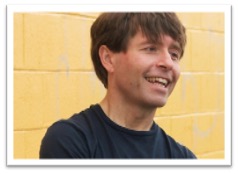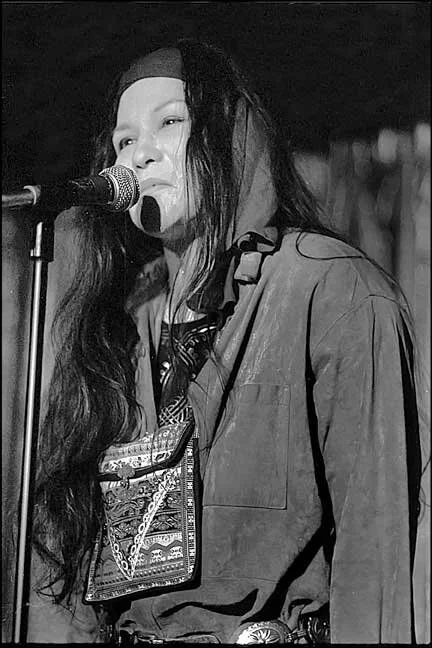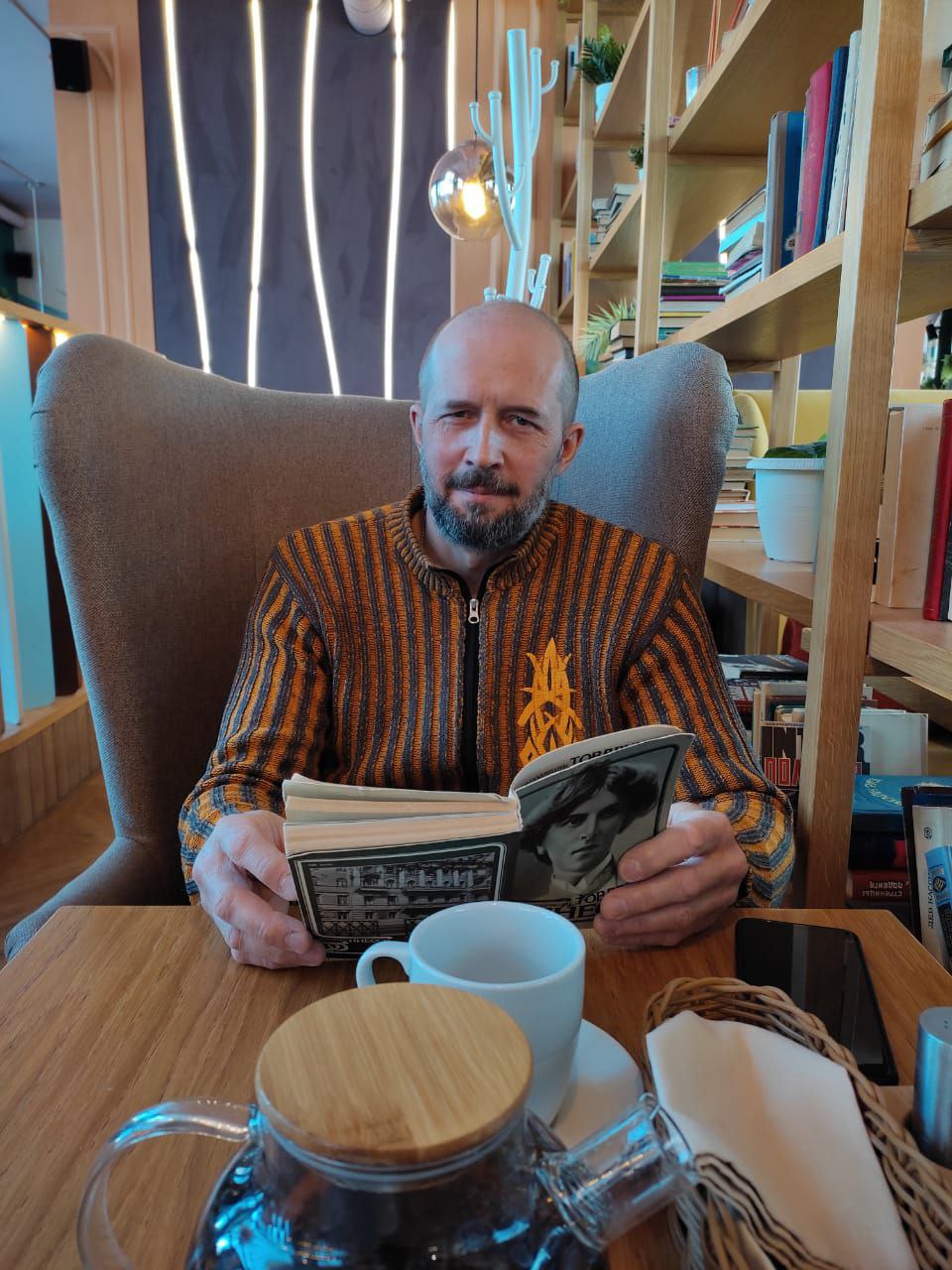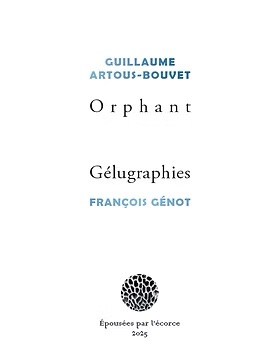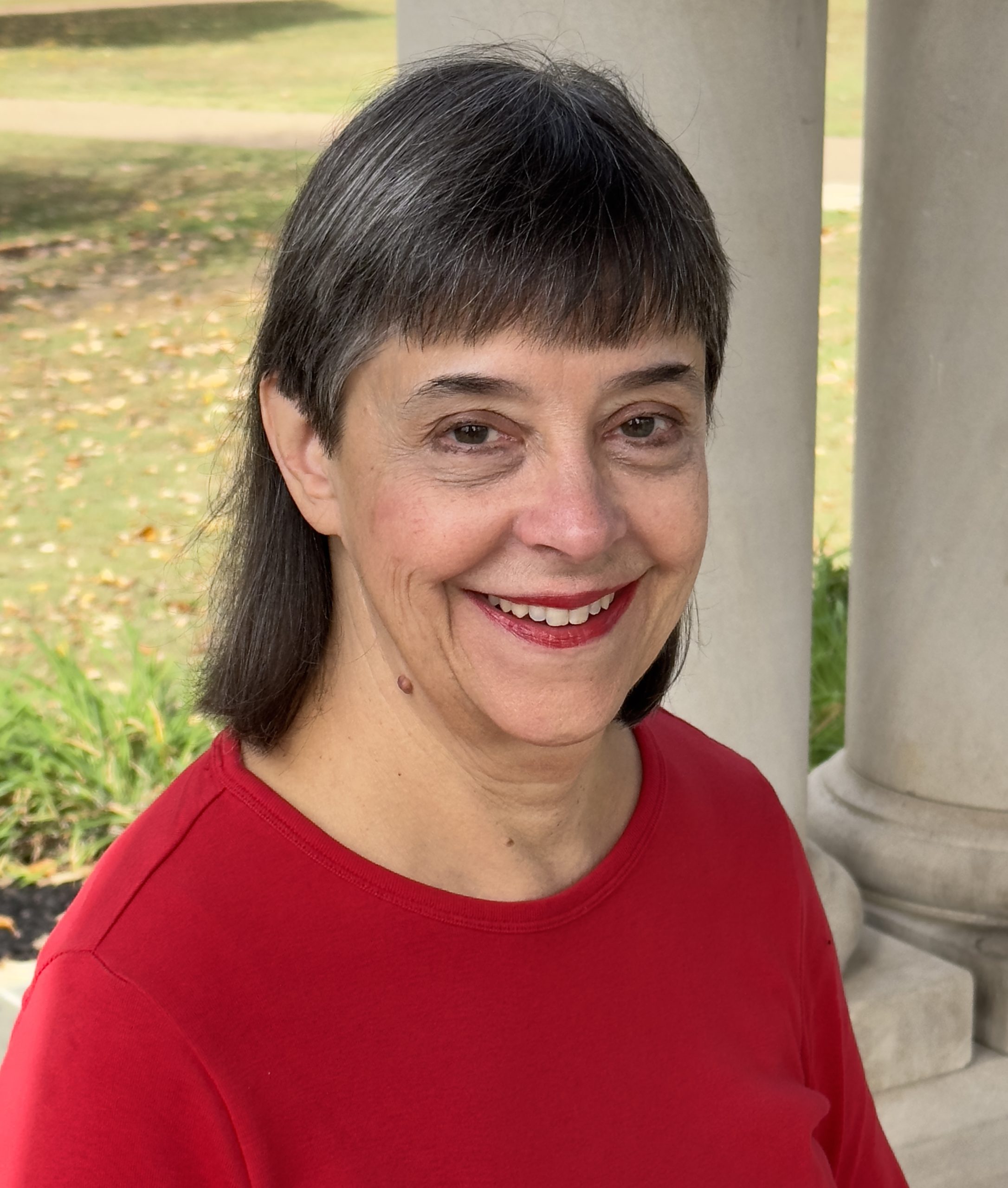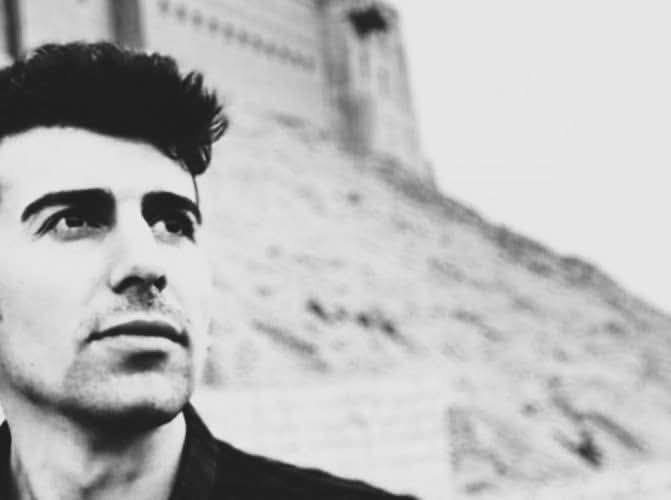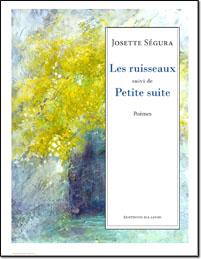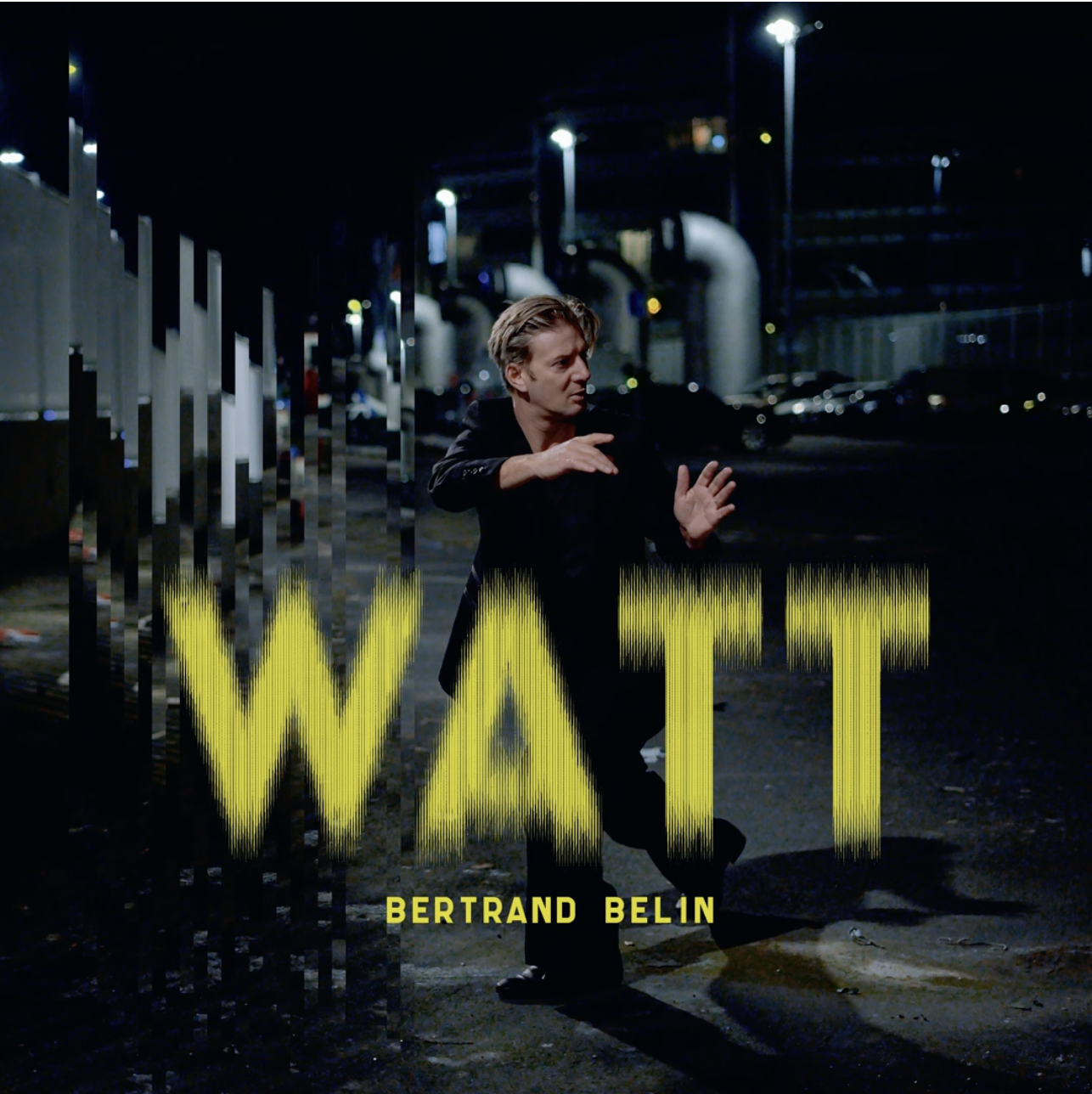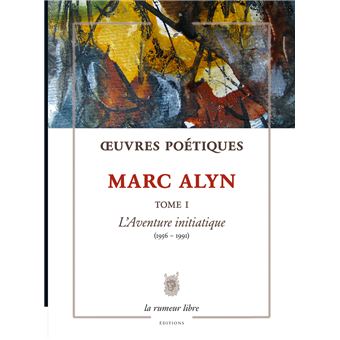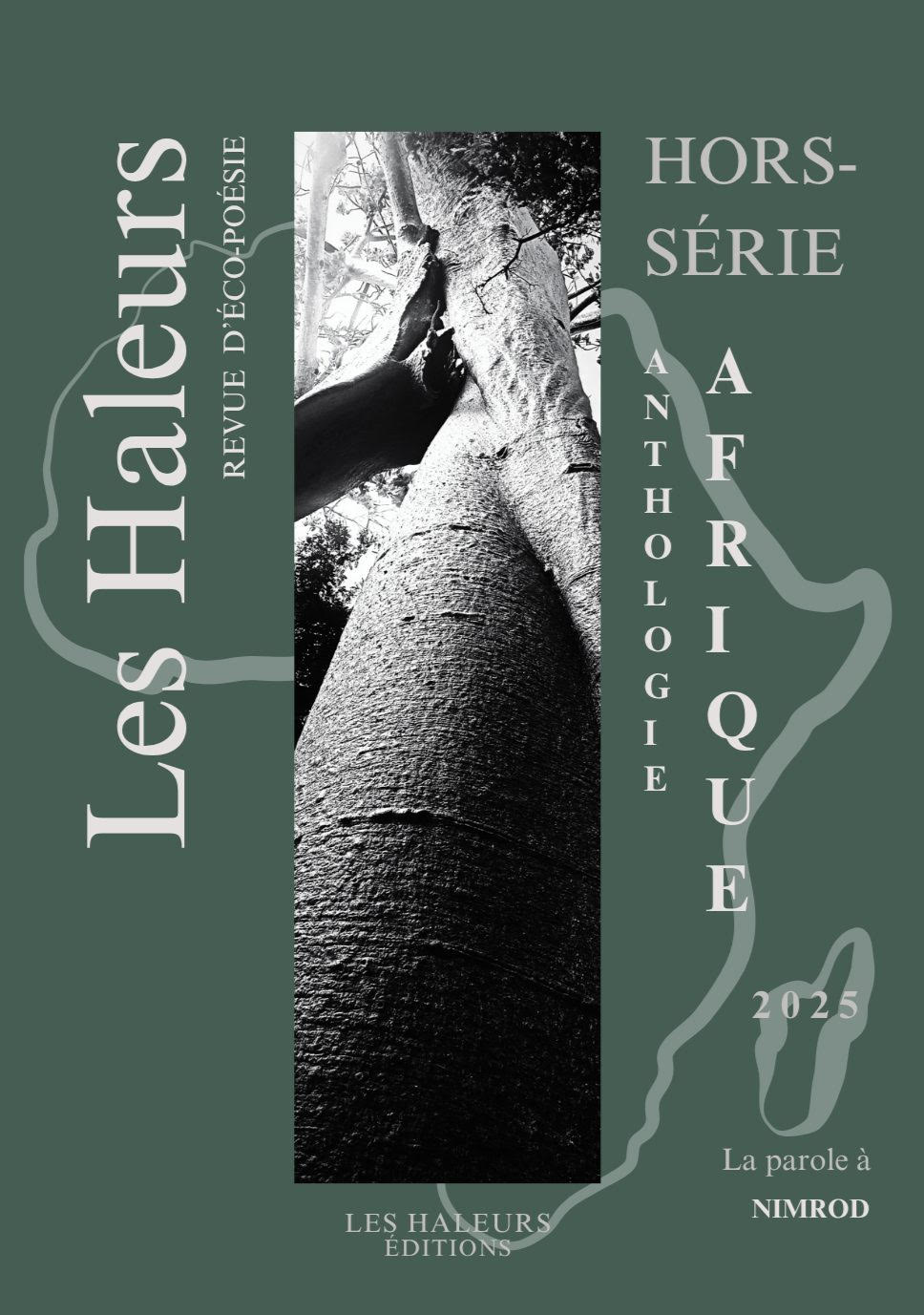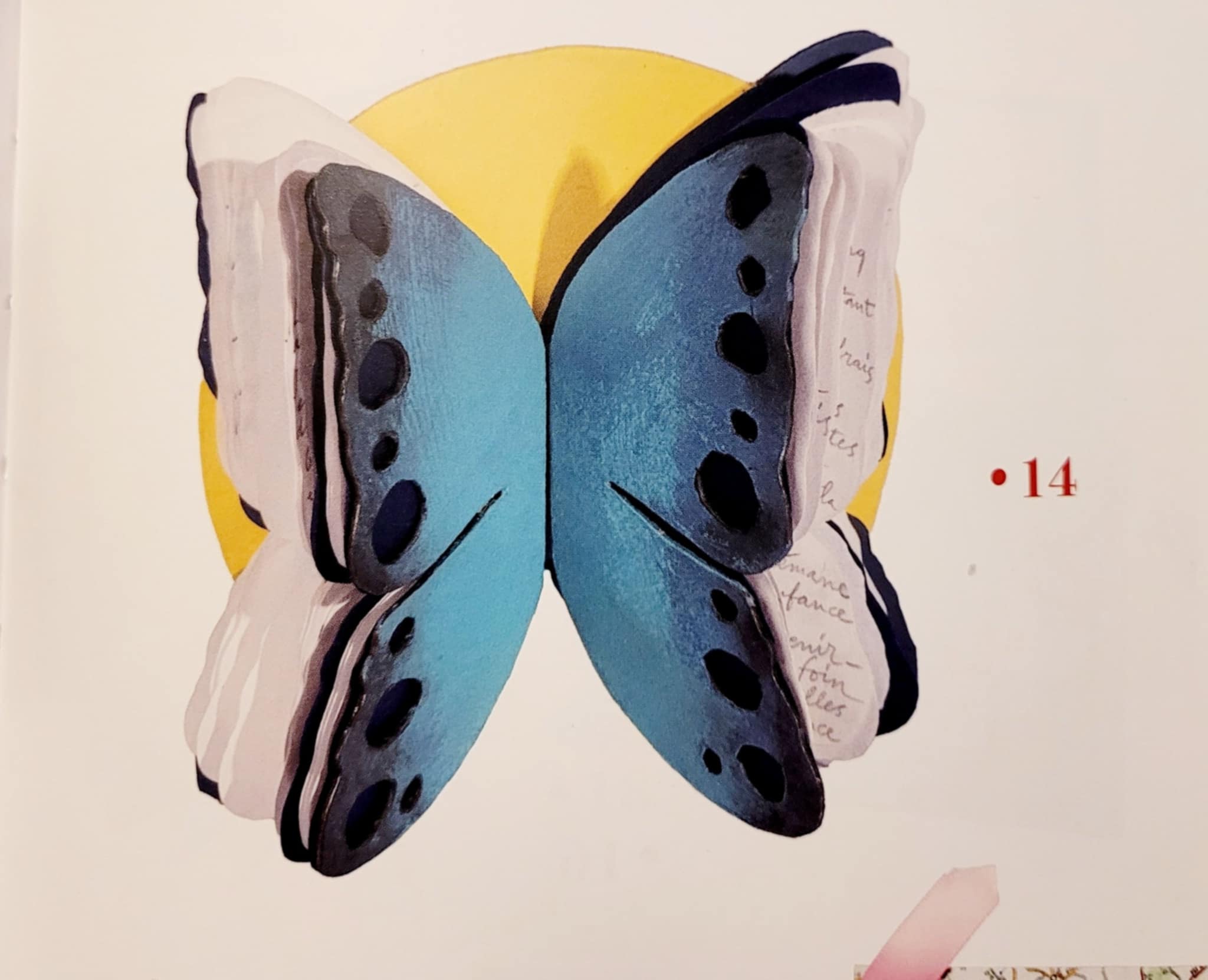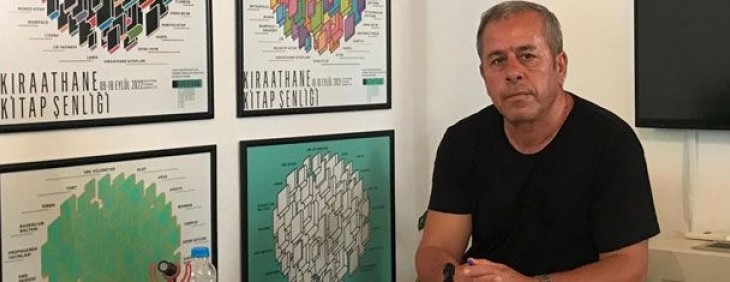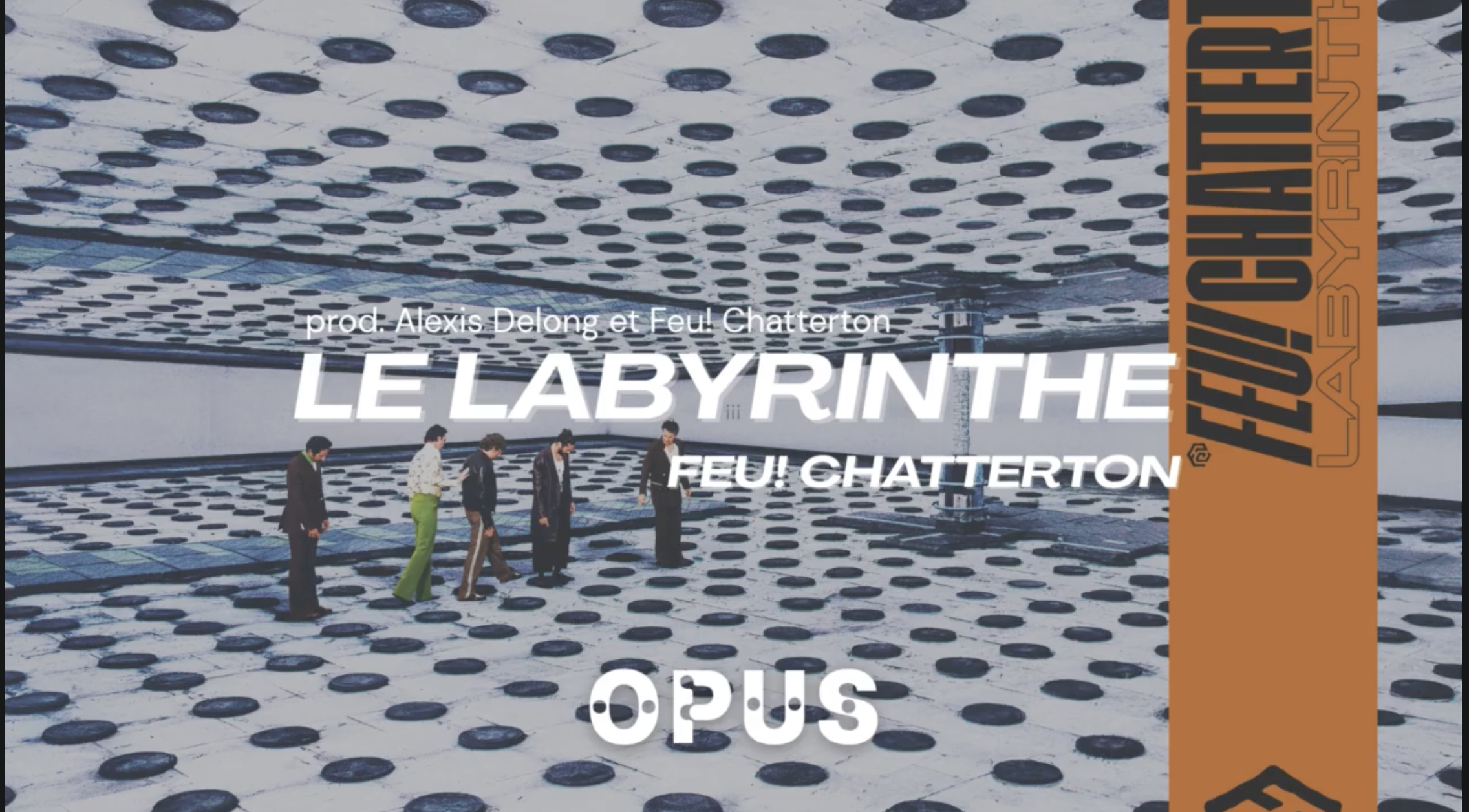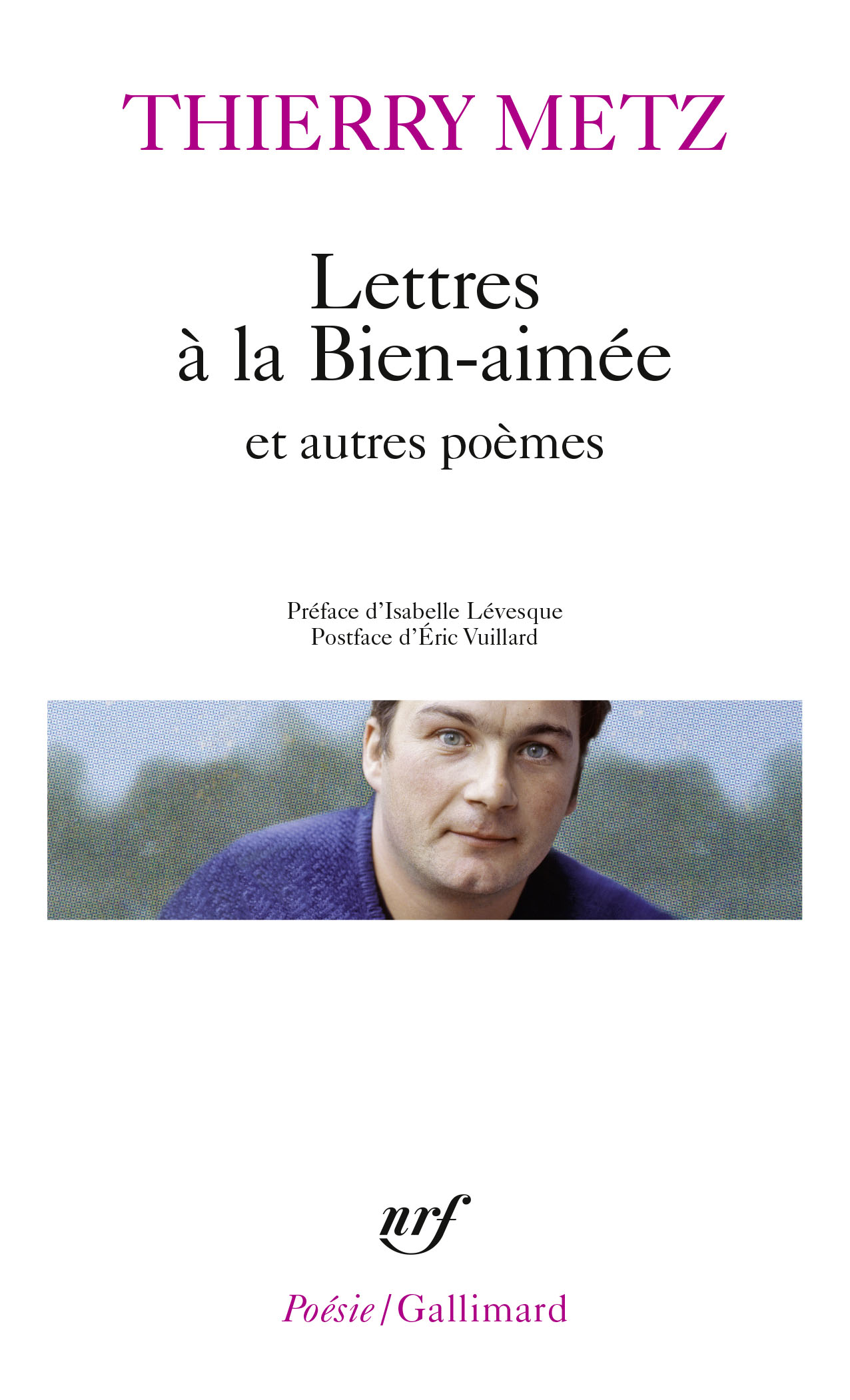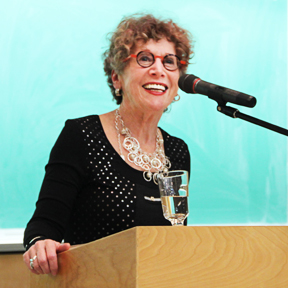Originaire de Terre-Neuve, le romancier, poète et nouvelliste canadien Michael Crummey est né à Buchans en 1965 et vit présentement à Saint-Jean de Terre-Neuve. Il est l’auteur de nombreux livres, souvent récompensés par des prix littéraires canadiens et internationaux. Après Les voleurs de rivière (2004), Du ventre de la baleine (2012) et Sweetland (2017), Les innocents est son quatrième roman traduit en français (août 2020). Le livre a paru en août 2019 dans sa version anglaise (Doubleday Canada) et reçu un très bel accueil de la critique. Il a notamment été en lice pour le prestigieux Scotiabank Giller Prize : « Le roman de Crummey a la capacité de changer la manière dont le lecteur envisage le monde. » Comme l’écrit aussi Mario Cloutier : « L’écrivain […] possède un imaginaire marqué par l’influence de la géographie sur le caractère des habitants. Le territoire comme personnage, le paysage bousculé par les vents et trempé par les larmes océaniques. » (« Michael Crummey, tout homme est une île », 5 juillet 2018, La Presse). En 2022, il a publié un nouveau recueil de poésies, Passengers, et son dernier roman, The Adversary, vient de paraître. Tous les textes présentés ici sont tirés du recueil Hard Light (Brick Books, 1998), livre qui a reçu un excellent accueil critique. Comme l’écrit R. G. Moyles au sujet de Hard Lightdans Canadian Book Review Annual : « […] C’est un brillant styliste : jamais obscur et rarement pédant. […] Crummey nous emmène dans des voyages extérieurs et intérieurs dont nous pouvons revenir avec une compréhension des forces éternelles trop puissantes pour être conquises mais qu’il est toujours nécessaire de défier. » Et John Steefler d’affirmer : « […] Les voix anonymes de Lumière crue nous parlent en tant qu’individus distincts. Ce qui ressort encore et encore au premier plan de leurs courts récits, c’est leur détermination et leur conscience […] une histoire sociale concise et poignante de Terre-Neuve. » Hard Light a inspiré le documentaire LUMIÈRE CRUE (2003) réalisé par Justin Simms, qui y trace le portrait de Michael Crummey en quête de ses racines (https://www.youtube.com/watch?v=D8IQ6c048aM).
9 textes tirés de Hard Light
Traduits et présentés par Jean-Marcel Morlat
[Water/Eau]
EAST BY THE SEA AND WEST BY THE SEA
I, Abraham LeDrew of Brigus in the District of Port de Grave, in consideration of the sum of Sixty Dollars ($60.00) in hand paid to me, have bargained, sold, and delivered unto Arthur Crummey of Western Bay, District of Bay de Verde: a Fishing Room with Dwelling House, Stage, and Store House at Breen’s Island, Indian Tickle, Labrador, on land bounded as follows: North by Tobias LeDrew, South by Henry LeDrew, East by the Sea and West by the Sea.
To have and to hold the aforesaid premises unto the said Arthur
Crummey, his heirs, executers, administrators and assigns forever.
In witness whereof I have herewith set my name and seal this 16th day of January, 1934, at Brigus, Newfoundland.
À L’EST DE LA MER ET À L’OUEST DE LA MER
Je soussigné, Abraham LeDrew de Brigus dans le District de Port de Grave, en contrepartie de la somme de soixante dollars (60 $) payée de la main à la main, ai négocié, vendu et remis à Arthur Crummey de Western Bay, District de Bay de Verde : des bâtiments de pêche avec maison d’habitation, un chafaud et une remise à Breen’s Island, Indian Tickle, Labrador, sur une terre bornée de la façon suivante : au nord par Tobias LeDrew, au sud par Henry LeDrew, à l’est par la mer et à l’Ouest par la mer.
Ledit Arthur Crummey, ses héritiers, ses exécuteurs testamentaires, ses administrateurs et ses bénéficiaires sont investis de la saisine des lieux susmentionnés.
En foi de quoi j’ai ci-joint apposé mon nom et mon sceau en ce seizième jour de janvier 1934, à Brigus, Terre-Neuve.
[Earth/Terre]
HUSBANDING
I kept the animals until Aubrey got sick, there was no one to help with the haying after that. Everything else I could do myself, cleaning the dirt out of the stalls and milking in the morning, getting the cows in from the meadow before supper, it was something to get up for.
Spent a good many nights out in the barn too, waiting for the cows to calve in the spring. Sometimes you’d have to get your hands in there, the legs tangled behind a calf’s head that was already hanging clear, a foot above dry straw, the tongue sticking out like a baby trying to get itself born from the mouth.
Only lost one cow in forty years of husbanding. Sat out there with her for hours that night and I knew things weren’t right, the cow shifting on her legs in a queer way like a lady with a stone in her shoe, and shaking her head when she moaned. Around midnight she still hadn’t started into birthing but she was bellowing loud enough to wake half of Riverhead, and trying to kick around her big belly. I sent Aubrey after Joe Slade to have a look at her, he came into the barn with his shirttail out and boots not tied; he didn’t say much, just went away and brought back his gun and a knife. You can save the calf, he told me, or you can stand aside and lose them both.
I couldn’t shoot her, but I used the knife after she fell, cutting away the belly to haul out the calf and rub her clean with straw. Aubrey brought a pail of milk he’d warmed on the stove and I fed the calf with an old baby bottle, the jerk of her head when she sucked almost enough to pull it from my hand. The blood, now that was something I’ll never forget, we had to rake out the stall and burn the straw in the garden next morning.
Too much for one person though, the haying, three or four weeks in the fall to cut it and get it into the barn after it dried. Sold off the cows a couple of years before Aubrey died. I was sixty-one years old the first time I bought a carton of milk from a store.
ÉLEVAGE
J’ai gardé les animaux jusqu’à ce qu’Aubrey tombe malade, il n’y avait personne pour aider aux foins après ça. Je pouvais faire tout le reste moi-même, nettoyer la saleté dans les stalles et traire le matin, rentrer les vaches du pré avant le souper, c’était une bonne occasion de se lever.
J’ai aussi passé pas mal de nuits dans la grange, au printemps, à attendre que les vaches vêlent. Parfois, il fallait y plonger les mains, les jambes emmêlées derrière la tête d’un veau déjà sorti, un pied pendant au-dessus de la paille sèche, la langue sortant comme un bébé essayant de naître par la bouche.
Je n’ai perdu qu’une seule vache en quarante ans d’élevage. Je suis restée assise avec elle pendant des heures cette nuit-là et je savais que quelque chose clochait, l’animal tenant sur ses jambes d’une étrange manière comme une femme avec une pierre dans sa chaussure, et secouant la tête lorsqu’elle gémissait. Vers minuit, elle n’avait toujours pas commencé à mettre bas, mais elle beuglait suffisamment fort pour réveiller tout Riverhead, lançant des coups de pieds autour de son gros ventre. J’ai envoyé Aubrey chercher Joe Slade pour qu’il l’examine, il est entré dans la grange avec son pan de chemise qui dépassait et des bottes délacées ; il n’a pas dit grand-chose, il est juste sorti et a rapporté son fusil et un couteau. Tu peux sauver le veau, m’a‑t-il dit, ou tu peux t’écarter et perdre les deux.
Je n’ai pas pu la tuer, mais j’ai utilisé le couteau après qu’elle est tombée et lui ai découpé le ventre pour sortir le veau et la nettoyer en la bouchonnant. Aubrey a apporté un seau de lait qu’il avait fait réchauffer sur le poêle et j’ai nourri le veau avec un vieux biberon, la saccade de sa tête lorsqu’il en suçait presque assez pour le tirer de ma main. Le sang, eh bien ça c’est quelque chose que je n’oublierai jamais, on a dû ratisser la stalle et brûler la paille dans le jardin le lendemain.
Beaucoup trop pour une personne cependant, le foin à l’automne, trois ou quatre semaines pour le couper et l’engranger après qu’il avait séché. J’avais vendu les vaches deux ou trois ans avant la mort d’Aubrey. J’étais âgée de soixante-et-un ans la première fois que j’ai acheté une brique de lait dans un magasin.
STONES
A lot of it was learning to live with cruelty. To live cruelly.
We always had a couple of cats in the house, and the males you could do something with yourself. Father cut a hole in a barrel top, pushed the cat’s head into it and had one of us hold its legs while he did the job with a set of metal shears. With females though, you had kittens to deal with once or twice a year. I drowned them in shallow water once, I didn’t think it would make any difference, but I can still see that burlap sack moving like a pregnant belly only two feet out of reach; and I had to force myself to turn away. Those kittens were barely a week old but they took a long time dying.
The worst I ever saw was the horses. You’d get a strap around their waist with a ring underneath, and tie the fore and back legs to the ring with ropes. Then you’d back the animal up nice and slow so it would fall over in sections like a domino set, hind end first, then the belly, shoulders, head. Once it was on the ground you’d wash the bag with a bit of Jeye’s Fluid, slit the sac open and snip the balls right off.
The cats bawled and screamed through the whole thing, but the horses never made a sound, they were too stunned I guess. Their legs made those ropes creak though, like a ship’s rigging straining in a gale of wind. It would be a full day before they came back to themselves, standing out in the meadow like someone who can’t recall their own name. Their wet eyes gone glassy with shock, as blind as two stones in a field.
PIERRES
C’était surtout une question d’apprendre à vivre avec la cruauté. De vivre cruellement.
Nous avions toujours deux ou trois chats à la maison, et les matous, on s’en occupait soi-même. Papa faisait un trou dans le couvercle d’un tonneau, y poussait la tête du chat et faisait tenir les jambes à l’un d’entre nous pendant qu’il accomplissait la tâche à l’aide d’une paire de pinces en métal. Avec les femelles cependant, il fallait s’occuper des chatons une ou deux fois par an. Une fois, j’en ai noyé dans de l’eau peu profonde ne pensant pas que ç’aurait de l’importance, mais ce sac en toile de jute, je le vois toujours bouger comme un ventre de femme enceinte à seulement deux pieds de moi ; et j’ai dû me forcer à tourner la tête. Ces chatons avaient à peine une semaine, mais ils ont mis du temps à mourir.
Le pire que j’aie jamais vu, ce sont les chevaux. On mettait une sangle autour de leur taille avec un anneau en-dessous, puis on attachait les pattes avant et arrière à l’anneau avec des cordes. Ensuite, on soutenait l’animal tout doucement, afin qu’il bascule en sections comme un jeu de dominos, le derrière tout d’abord, puis le ventre, les épaules, la tête. Une fois à terre, on nettoyait le sac avec un peu de fluide Jeyes[1], on fendait la poche et on coupait les couilles directement d’un petit coup sec.
Les chats braillaient et hurlaient tout du long, mais les chevaux ne produisaient jamais un seul son, ils étaient trop effarés j’imagine. Leurs jambes faisaient grincer ces cordes pourtant, comme le gréement d’un bateau tendu dans un coup de vent. Ça prenait une bonne journée avant qu’ils ne retrouvent leurs esprits, se détachant dans le pré comme quelqu’un qui n’arrive pas à se souvenir de son propre nom. Leurs yeux devenus vitreux à cause du choc, aussi aveugles que deux pierres dans un champ.
[Fire/Feu]
BONFIRE NIGHT
Guy Fawkes tried to blow up the English Parliament Buildings with a basement full of explosives and got himself hanged for his trouble. Burned in effigy on the anniversary of his death in every Protestant outport in Newfoundland. No one remembers who he was or what he had against the government, but they love watching the clothes take, the straw poking through the shirt curling in the heat of the fire and bursting into flame.
The youngsters work for weeks before the event, gathering tree stumps and driftwood, old boxes, tires, and any other garbage that will burn, collecting it into piles on the headlands or in a meadow clearing. The spark of fires up and down the shore like lights warning of shoals or hidden rocks. Parents losing their kids in the darkness, in the red swirl of burning brush; teenagers running from one bonfire to the next, feeling something let loose inside themselves, a small dangerous explosion, the thin voices of their mothers shouting for them lost in the crack of dry wood and boughs in flames. They horse-jump an expanse of embers, their shoes blackened with soot, dare one another to go through larger and larger fires, through higher drifts of flankers: their young bodies suspended for a long moment above a pyre of spruce and driftwood, hung there like a straw effigy just before the flames take hold. Guy Fawkes a stranger to them, though they understand his story and want it for themselves.
Rebellion. Risk. Fire.
LA NUIT DES FEUX DE JOIE
Guy Fawkes a essayé de faire exploser les édifices du Parlement anglais avec un sous-sol rempli d’explosifs et s’est fait prendre pour sa peine. Brûlé en effigie le jour de l’anniversaire de sa mort dans chaque village protestant isolé de Terre-Neuve. Personne ne se rappelle qui il était ou ce qu’il avait contre le gouvernement, mais tout le monde adore regarder les vêtements prendre feu, la paille pointer à travers la chemise, monter en volutes dans la chaleur du feu et s’enflammer soudainement.
Les jeunes travaillent durant des semaines précédant l’événement, ramassent des souches d’arbre et du bois flotté, de vieilles boîtes, des pneus, et n’importe quel déchet qui brûle, rassemblant tout ça pour en faire des tas sur les promontoires ou dans une clairière. Les étincelles des feux sur tout le littoral telles des lumières mettant en garde contre les écueils ou les rochers cachés. Les parents perdent leurs gosses dans l’obscurité, dans le tourbillon rouge de la broussaille qui brûle ; les adolescents courent d’un feu de joie à l’autre, sentant quelque chose se libérer en eux, une petite explosion dangereuse, les voix fines de leurs mères appelant ceux qui sont perdus dans le crépitement du bois sec et des branches enflammées. Ils sautent par-dessus une étendue de charbons ardents, leurs chaussures noires de suie, se défient de franchir des feux de plus en plus grands, de plus hauts tas de braises brûlantes : leurs jeunes corps suspendus pendant un long moment au-dessus d’un bûcher d’épinette et de bois flotté, pendus là telle une effigie de paille juste avant que les flammes ne prennent le dessus. Guy Fawkes un étranger pour eux, bien qu’ils comprennent son histoire et qu’ils veuillent se l’approprier.
Rébellion. Risque. Feu.
BONFIRE NIGHT (2)
They’ve swiped a cupful of gasoline – my father and Johnny Fitzgerald – doused a spruce branch and shoved it beneath the mound meant for burning. A match is struck and tossed: the suck of flame taking hold, the fire eating its way up through the overturned palm of driftwood and boughs, a cap of white smoke shifting over the crown of the bonfire.
Everyone takes a step back from the scorching heat, the crackle and spit of spruce gum burning. Night falls. Adults pass flasks of whiskey or moonshine, the flicker of silver making its way from hand to hand like the collection plate at church.
The boys have spent weeks hauling trees and branches across the barrens, scavenging rags and bits of scrap wood, but they aren’t satisfied somehow with the innocence of the fire, its simple appetite. They stand restless in the dark light, their heads full of mischief: something they can’t articulate is eating at them, burning its way from the inside out.
Match Avery steps up beside them like an answered prayer, breathing alcohol, nodding drunkenly toward the flames. “Some fire,” he tells them. “Nice bit of fire.” He blows soot into the crook of his palm, wipes the hand on the seat of his pants. “All boughs though, she won’t last long.” He nods again, emphatically. He’s an adult, he’s drunk, he knows everything there is to know about anything. “Needs a bit of solid wood to keep her going,” he tells them.
The boys disappear into darkness, running a narrow dirt path worn through meadows. At Match’s house they head straight for the root cellar like spilled gasoline rushing toward an open flame. They dump a summer’s worth of vegetables onto damp ground, carry the empty wooden barrels back to the fire.
Match turns them in the red and yellow flicker, amazed by the boys’ luck, by their resourcefulness. “Now these,” he announces, “are lovely barrels.” While my father and Johnny Fitzgerald look on Match stamps them flat himself, heaving the splintered sticks atop the blaze, throwing up a shower of sparks. “Nice barrels,” he says again when he’s done, and then wanders off toward another circle of light.
LA NUIT DES FEUX DE JOIE (2)
Ils ont raflé un récipient d’essence à toute volée — en ont aspergé une branche d’épinette et l’ont fourrée sous le tas destiné à brûler. Une allumette est grattée et lancée : la succion de la flamme qui prend le dessus, le feu qui grignote un passage à travers le palmier retourné de bois flotté et de branches, un bouchon de fumée qui se déplace sur la couronne du feu.
Tout le monde fait un pas en arrière loin de la chaleur torride, le crépitement et le grésillement de la gomme d’épinette en train de brûler. La nuit tombe. Les adultes font circuler des flasques de whiskey et d’alcool de contrebande, l’éclat d’argent qui se taille un passage de main en main comme le plateau pour la quête à l’église.
Les garçons ont passé des semaines à traîner des arbres et des branches à travers les landes, récupérant des haillons et du bois de rebut, mais d’une certaine façon ils ne sont pas satisfaits de l’innocence du feu, de son appétit simple. Ils se tiennent là, impatients, la tête remplie d’espièglerie ; quelque chose qu’ils n’arrivent pas à exprimer les ronge, les consume de l’intérieur.
Match Avery s’avance près d’eux comme une prière qui a été entendue, respirant l’alcool, faisant un signe de la tête en titubant vers les flammes. « Quel feu, leur dit-il. Un beau p’tit feu. » Il souffle sur de la suie qui va se loger dans le creux de sa paume, s’essuie les mains sur le fond de son pantalon. « Que des branchages pourtant, il ne durera pas longtemps. » De nouveau, il opine du chef, catégoriquement. Soûl et adulte, il sait tout ce qu’il y a à savoir sur n’importe quoi. « Il faut un peu de bois solide pour l’entretenir », leur dit-il.
Les garçons disparaissent dans l’obscurité, empruntant un étroit chemin de terre percé à travers les prés. Chez Match, ils se dirigent directement vers le caveau à légumes comme de l’essence renversée se ruant sur une flamme nue. Ils se débarrassent des légumes qui représentent le travail de tout un été sur du terrain humide et emportent les tonneaux de bois vides jusqu’au feu.
Match les tourne dans la lueur rouge et jaune, stupéfait de la chance des garçons, de leur débrouillardise. « Alors ça, annonce-t-il, ce sont des tonneaux magnifiques. » Pendant que mon père et Johnny Fitzgerald continuent de regarder, Match les aplatit lui-même d’un coup de pied, soulevant avec effort les bouts de bois fendus en éclats au-dessus des flammes, qui vomissent une pluie de tisons. « Des tonneaux magnifiques », répète-t-il lorsqu’il a fini, puis s’éloigne vers un autre cercle de lumière.
Les garçons restent ensemble dans la chaleur effrayante, multipliée maintenant par le bois sec, les flammes se dressant comme l’herbe des prés face aux faneurs. Le feu de joie continue de brûler pendant des heures à côté d’eux, sombres étincelles postillonnant sur les étoiles.
SOLOMON EVANS’ SON
The graveyard in the Burnt Woods was being fenced in the year 1890. The first person buried there was Solomon Evans’ son.
The new school on the South Side was built in the summer of 1894 beside the church. First prayers were held on January 12th, 1895.
The first church bell for the South Side arrived on March 25th, 1908, and it rang for the first time on March 27th, the peals as clear as the blue sky, the gulls put to wing by the sound of it, their brief racket like an echo rusting into silence.
The first time the bell tolled a death was for Mrs. Ellen Kennel. The school was closed for the afternoon, the children standing in the balcony of the church to watch her funeral, and some of them followed the coffin to the graveyard in the Burnt Woods. A hedge of people stood around the hole in the earth. The minister threw a handful of dirt on the wooden lid. “Ashes to ashes,” he intoned, the October wind stealing the words from his mouth as he spoke.
The mourners filing out past the plain wooden cross marking the grave of Solomon Evans’ son. Darkness of spruce trees, maples scorched by the coming of winter. And no one could recall the boy’s name, or what it was he died of.
LE FILS DE SOLOMON EVANS
En 1890, on clôturait le cimetière des Brûlis. La première personne à y avoir été enterrée, c’est le fils de Solomon Evans.
La nouvelle école de South Side a été construite durant l’été de 1894 à côté de l’église. Les premières prières ont été organisées le 12 janvier 1895.
La première cloche de l’église, arrivée le 25 mars 1908, a sonné pour la première fois le 27 mars, les premières volées aussi claires que le ciel bleu, le son faisant s’envoler les mouettes, leur bref vacarme tel un écho rouillant dans le silence.
La première fois qu’on a sonné le glas, c’était pour Mrs. Ellen Kennel. L’école a été fermée durant l’après-midi, les enfants se tenant debout sur le balcon de l’église pour assister aux funérailles, et certains d’entre eux ont suivi le cercueil jusqu’au cimetière des Brûlis. Une haie de gens était rassemblée autour du trou creusé dans la terre. Le pasteur a jeté une poignée de terre sur le couvercle de bois. « Tu n’es que poussière », a‑t-il entonné, le vent d’octobre volant les paroles de sa bouche tandis qu’il parlait.
Les parents du défunt passant l’un après l’autre devant la simple croix en bois marquant la sépulture du fils de Solomon Evans. Obscurité des épinettes, érables roussis par la venue de l’hiver. Et personne ne pouvait se rappeler le nom du garçon, ou de quoi il était mort.
PROCESSION
Mary Penny was twenty-one years old and almost nine months pregnant when she died of fright. A clear Saturday morning, wind off the ocean. Her husband away, fishing on the Labrador. She was carrying a bucket down to the brook for water, a hand on her belly, the child moving beneath her fingers like a salmon in a gill net.
From the bank above the brook she could see the United Church on the south side below Riverhead, the new school beside it. She kept her hand to her belly as she walked down the steep slope, balanced herself on stones over the surface. The bucket floated for a moment, then dipped and dragged with the weight of the water. She grunted as she pulled the full container clear of the brook. A stitch in her side moved slowly across her back, a thin flame licking at muscle.
At the top of the slope again she set the weight down in the grass, straightening with her hands on her hips, lungs clutching at the salt air. The sky was perfectly clear. She stared out across the mouth of the harbour, lifted a hand to shade her eyes. Her eyebrows pursed. There was a spot moving toward her, a peculiarly metallic smudge on the horizon that was becoming larger, more spherical. No, not a cloud, it was too uniform, too intent somehow.
Carried off course to the eastern coast of Newfoundland by a south-westerly wind over the Atlantic, the airboat was about to turn and begin a journey along the coast of the United States. In New York, a baseball game between the Yankees and the Brooklyn Dodgers would be interrupted as it passed overhead, the players and the crowd of fifteen thousand standing to stare at its nearly silent procession above the city.
It came closer to the spot where Mary stood alone, a cylindrical tent as large as the church, now larger, the sun lost behind it.
Her heart leapt in her chest, a panicked animal kicking at the stall door. The baby turned suddenly, dropped, like a log collapsing in a fireplace. She began running awkwardly, holding her stomach. She tried to call for her mother, her younger sister, but no sound came from her mouth; the shadow of the Zeppelin chasing her across the grass. Halfway along the path to her house she fell on her stomach, the pain pulling a cry from her throat. She lifted herself and began running again, the stitch across her back like a hook attached to a tree behind her.
Another two hundred yards.
By the time she reached the house she was already in labour. Bleeding through her clothes.
PROCESSION
Mary Penny avait vingt-et-un ans et était enceinte de presque neuf mois lorsqu’elle est morte d’effroi. Un samedi matin dégagé, le vent soufflant de l’océan. Son mari parti pêcher au Labrador. Elle transportait un seau pour aller chercher de l’eau au ruisseau, une main sur le ventre, l’enfant bougeant sous ses doigts comme un saumon pris dans un filet maillant.
Au bord du ruisseau, elle pouvait voir l’Église unie au sud en bas de Riverhead, la nouvelle école à côté. Elle gardait la main sur le ventre en descendant la pente escarpée, se tenant en équilibre sur des pierres au-dessus de la surface. Le seau a flotté un instant, puis il est descendu et a été emporté par le poids de l’eau. Elle a poussé un grognement en tirant le contenant hors de l’eau. Un point de côté lui a traversé lentement le dos, une mince flamme lui léchant le muscle.
En haut de la pente, elle a de nouveau posé le poids dans l’herbe, se redressant avec les mains sur les hanches, ses poumons se cramponnant à l’air salé. Le ciel était parfaitement dégagé. Elle a regardé fixement de l’autre côté du port, a mis une main sur ses yeux pour s’abriter du soleil. Ses sourcils se sont retroussés. Un point dans le ciel s’avançait vers elle, une tache bizarrement métallique à l’horizon qui grossissait et devenait plus sphérique. Non, pas un nuage, c’était trop uniforme, trop intense curieusement.
Dévié de son itinéraire vers la côte orientale de Terre-Neuve par un vent sud-ouest au-dessus de l’Atlantique, le navire aérien était sur le point de faire demi-tour et de commencer un voyage le long de la côte des États-Unis. À New York, un match de baseball entre les Yankees et les Brooklyn Dodgers serait interrompu tandis que le dirigeable passerait au-dessus, les joueurs et la foule composée de quinze mille personnes se levant pour regarder fixement sa procession presque silencieuse au-dessus de la ville.
L’aéronef s’est rapproché de l’endroit où Mary se tenait seule, debout, une tente cylindrique aussi grande qu’une église, maintenant plus grande, le soleil perdu derrière.
Son cœur s’est élancé dans sa poitrine, animal paniqué ruant contre la porte de la stalle. Le bébé s’est retourné soudainement, est tombé, comme une bûche s’effondrant dans un âtre. Elle a commencé à courir maladroitement, se tenant le ventre. Elle a essayé d’appeler sa mère, sa petite sœur, mais aucun ne sortait de sa bouche ; l’ombre du Zeppelin la pourchassant dans le jardin. À mi-chemin sur le sentier la menant chez elle, elle est tombée sur l’estomac, la douleur lui tirant un cri de la gorge. Elle s’est soulevée et a commencé à courir de nouveau, le point dans le dos tel un crochet attaché à un arbre derrière elle.
Plus que deux-cents mètres.
Au moment où elle est arrivée à la maison, elle était déjà en train d’accoucher, saignant à travers ses vêtements.
OLD WIVES’ TALES
Except it wasn’t a wife talking, or a woman for that matter. It was Charlie Rose at the house to see Father. I was only five or six years old and not even a part of the conversation, sitting under the kitchen table with the dog, listening to the men talk. Charlie said you had to get one before it learned to fly and split its tongue. Right down the middle, he said, and when the crow found the use of its wings it would be able to speak, Arthur, the same as you or I at this table.
You know how a child’s mind works. The dog was just a pup then, three or four months old, a yellow Lab. A hot summer that year, we were sitting outside the day after Charlie’s visit, her mouth open, panting, the thin tongue hanging there as pink and wet as the flesh of a watermelon. I loved that animal, I just wanted to hear her speak is all. Went in the house and brought out Mother’s sewing shears, held one side of the tongue between my thumb and forefinger. The line down the centre like a factory-made perforation meant as a guide for the scissors.
What a mess that dog made when she drank, water slopping in all directions, her tongue split like a radio antennae, the separate leaves flailing as she lap-lap-lapped at the bowl. And not a word in her head for all that.
CONTES DE VIEILLES FEMMES
Sauf que ce n’était pas une épouse qui parlait, ou une femme d’ailleurs. C’était Charlie Rose venu voir Papa à la maison. Je n’avais que cinq ou six ans et ne faisais même pas partie de la conversation, assis sous la table de cuisine avec la chienne, écoutant les hommes parler. Charlie a dit qu’il fallait s’en procurer un avant qu’il apprenne à voler et lui fendre la langue. Juste au milieu, a‑t-il dit, et lorsque le corbeau découvrirait l’utilisation de ses ailes il parviendrait à parler. Arthur, tout comme toi et moi à cette table.
Tu sais comment fonctionne l’esprit d’un enfant. La chienne n’était qu’un chiot alors, trois ou quatre mois, un Labrador jaune. Un été chaud cette année-là, nous étions assis dehors le jour après la visite de Charlie, sa gueule ouverte, haletante, la fine langue pendant là aussi rose et mouillée que la chair d’une pastèque. J’adorais cet animal, je voulais juste l’entendre parler, c’est tout. Je suis allé dans la maison et j’ai sorti les ciseaux de couture de Maman, j’ai tenu un côté de la langue entre mon pouce et mon index. La ligne au centre était comme une perforation fabriquée en usine et censée guider les ciseaux.
Quelle pagaille cette chienne faisait lorsqu’elle buvait, renversant de l’eau dans toutes les directions, sa langue fourchue comme une antenne de radio, deux feuilles séparées battant l’air tandis qu’elle lap-lap-lappait le bol. Et pas une parole dans la tête en dépit de ça.
TWO VOICES
My uncle sits beside the wood stove in the kitchen, between two voices. On his left the varnished radio, on the daybed to his right his baby sister, squalling. Look, the radio begins, up in the air, it’s a bird, it’s a plane … it’s Superman! His sister screams into her red fists, a single unappeasable cry. My uncle leans toward the radio, the words distorted or lost beneath the baby’s wail, like mice scurrying beneath a wood pile: … aster … ana … ding bull … He cannot hush her or make her stop. Able … eap … build … gle bound, the program is about to begin, his mother is elsewhere.
He stands over the child, stares down at her face, at the round open mouth like an entrance to a rabbit hole, a hidden creature crying from inside. He fingers a peppermint knob in his pocket and his hand suggests a plan, the candy about the size of the voice that will not stop: he drops it into the hole like a stone into a well, the soft plop echoing in the sudden, sickening silence.
Silence. He does not even hear the radio now as his sister’s face begins to swell to the colour of a partridgeberry, a bright painful red, and panic enters him like a voice from the stars as the cheeks become blueish, then blue, and the eyes bulge in their sockets like snared animals. The entire episode of suffocation taking place in absolute silence, my uncle immobilized and staring stupidly at his sister, while behind him Superman goes on saving another world in silence.
And behind him his mother claps through the door, pushing him away and lifting the girl into the air by her heels, she is shouting something he cannot hear as she slaps the baby’s back, and a wet peppermint candy falls to the floor, nothing, nothing, he hears nothing at all until the first cry, his sister’s voice returning, the sound of her squall returning him to the world, to his mother yelling curses on his head, and the radio’s bland conversation going on and on like a long sigh of relief in the background.
DEUX VOIX
Mon oncle est assis près du poêle à bois dans la cuisine, entre deux voix. À sa gauche, la radio vernie, sur le canapé-lit à sa droite sa petite sœur, qui braille. Regarde, commence la radio, en l’air, c’est un oiseau, c’est un avion … c’est Superman ! Sa sœur hurle dans ses poings rouges, un cri unique et inapaisable. Mon oncle se penche vers la radio, les paroles déformées ou perdues derrière les gémissements du bébé, comme des souris qui détalent sous un tas de bois : … astre .… ana … timent … brut … Il n’arrive pas à la faire taire ou à l’arrêter. Able … auter … édi … gle bond, le programme est sur le point de débuter, sa mère est ailleurs.
Il surveille l’enfant, baisse les yeux vers son visage, vers la bouche ronde et ouverte comme l’entrée d’un terrier de lapin, une créature cachée criant depuis l’intérieur. Il touche un bonbon à la menthe dans sa poche et sa main suggère un plan, la sucrerie environ la taille de la voix qui ne veut pas s’arrêter : il la laisse tomber dans le trou comme une pierre dans un puits, le doux floc résonnant dans le silence soudain et écœurant.
Silence. Il n’entend même pas la radio maintenant tandis que le visage de sa sœur commence à prendre la couleur d’une airelle en gonflant, un rouge vif et douloureux, et la panique pénètre en lui comme une voix des étoiles tandis que les joues deviennent bleuâtres, puis bleues, et que les yeux sortent de leurs orbites tels des animaux pris au piège. L’épisode entier de suffocation se produisant dans le silence absolu, mon oncle immobilisé dévisageant bêtement sa sœur, tandis que derrière lui Superman continue de sauver un autre monde en silence.
Et derrière lui, sa mère franchit la porte comme le tonnerre, le repoussant et soulevant la fille en l’air par ses talons, elle crie quelque chose qu’il n’arrive pas à entendre pendant qu’elle tape dans le dos du bébé, et un bonbon à la menthe mouillé tombe par terre, rien, rien, il n’entend rien du tout jusqu’au premier cri, la voix de sa sœur revenant, le son de son braillement le ramenant au monde, aux cris et jurons de sa mère sur sa tête, et la conversation molle de la radio continuant indéfiniment comme un long soupir ou soulagement à l’arrière-plan.
Note
[1] Ce type de fluide est utilisé par les jardiniers pour différents types de nettoyage et se débarrasser des mauvaises herbes. Il a été inventé par un Anglais, John Jeyes en 1877.
Présentation de l’auteur
- Lorna Crozier — God of Shadows, une cosmogonie du divin - 6 novembre 2025
- Quatre poèmes de Michael Crummey - 6 janvier 2025
- Michael Crummey : poèmes tirés de Hard Light - 6 janvier 2024
- Lorna Crozier, de Vancouver au monde - 5 septembre 2023
- 9 poèmes de Patrick Lane - 1 septembre 2022
- Cinq poèmes de Thomas Krampf - 6 septembre 2021
- Cinq poèmes de Michael Crummey - 5 mars 2021
